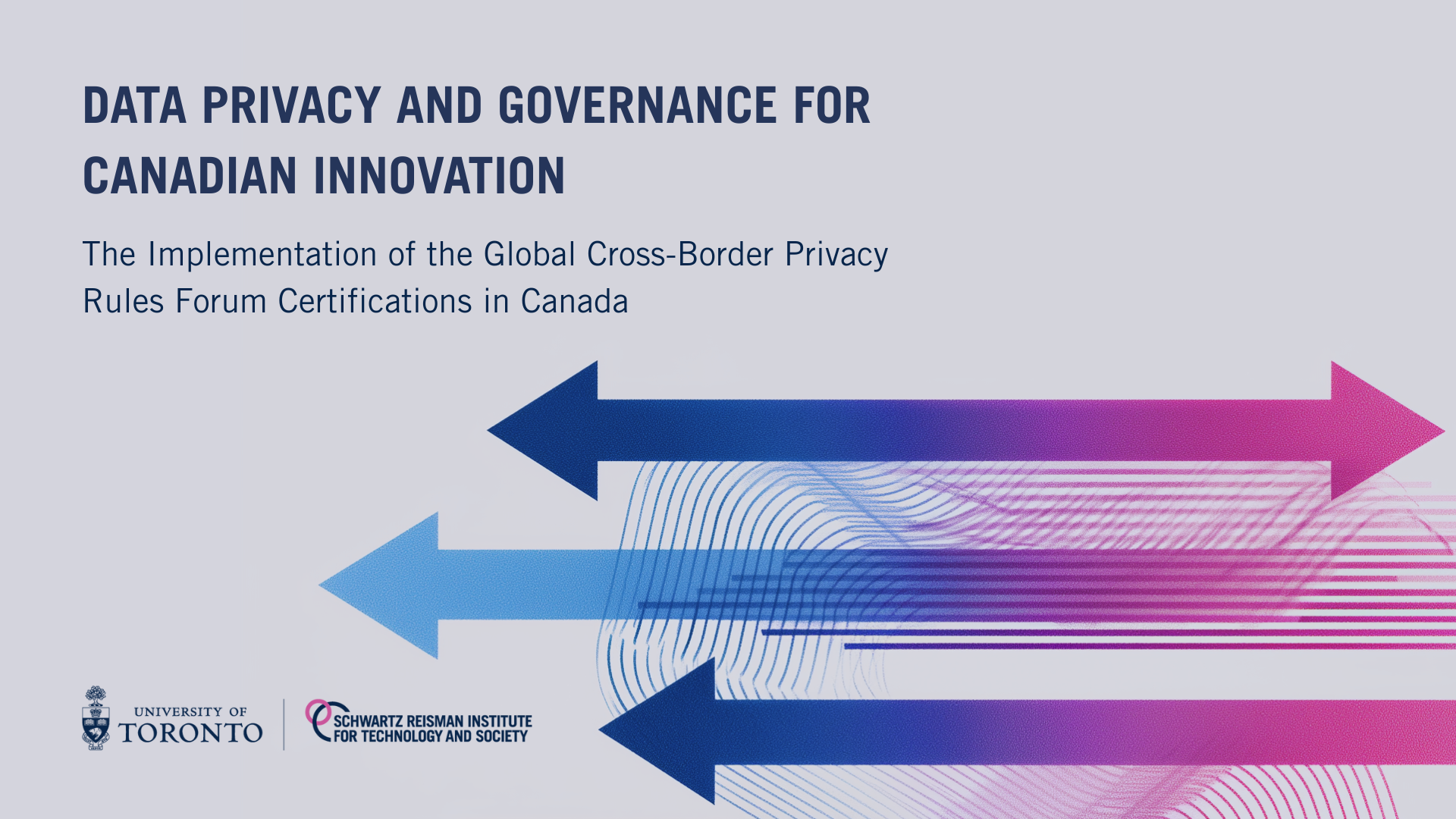All about Bill C-70, the Canadian government’s attempt to counter foreign interference
What measures does Bill C-70 take to bolster Canadian confidence in elections? And how might it apply to the use of AI in our elections? SRI Research Assistant Ella Lim takes us through the new bill and its implications.
In May of 2024, the Canadian government’s Foreign Interference Commission published a report investigating the 2019 and 2021 Canadian federal elections. The goal was to better understand foreign interference in Canada and consider how Canada might improve its protections of democratic institutions from such threats. The report concluded that although foreign interference did not impact the results of the elections in both years, it ‘stained’ the electoral process, undermining public confidence in Canada’s democratic institutions.
Bill C-70, “An Act respecting countering foreign interference,” was proposed shortly after the release of the Commission's report and became law on June 20, 2024.
In addition to concerns about foreign interference in elections, the impact of artificial intelligence (AI) on democratic processes has raised significant concerns around the world. Advanced technologies can manipulate or generate false content to facilitate disinformation campaigns and demobilize and deceive voters as well as impose cyber threats to election administration and infrastructure, all of which undermine democratic discourse.
So what measures does Bill C-70 take to bolster Canadian confidence in elections? And how might it apply to the use of AI in our elections?
Overview of Bill C-70
Bill C-70 aims to strengthen national security and protect Canadians from the threat of foreign interference, equip the government with tools to detect and respond to foreign interference, and increase transparency and accountability related to advocacy on behalf of foreign governments and entities. The bill updates the powers and oversight of Canadian intelligence and law enforcement agencies to collect, analyze, and search personal information. It also creates new criminal offences related to conduct undertaken on behalf of or in association with a foreign entity. This includes the offences of deceptive conduct with the intent to influence democratic rights and the sabotage of essential infrastructure. The bill also introduces new provisions to the Canada Evidence Act related to the disclosure and use of sensitive information in legal proceedings. Finally, the bill introduces a new piece of legislation called the Foreign Influence Transparency and Accountability Act (FITAA), which includes provisions for:
Cabinet to appoint a Foreign Influence Transparency Commissioner who is responsible for independently administering the new act and overseeing the new registry.
Mandating certain individuals and organizations to report arrangements, defined as any situation in which “a person undertakes to carry out, under the discretion of or in association with a foreign principal any… activities in relation to a political or governmental process in Canada,” to the Commissioner.
Creating a publicly accessible registry of such arrangements which requires registration within 14 days after the day on which they enter the arrangement, subject to a $5 million penalty or imprisonment for a term of not more than five years, or to both for noncompliance.
Providing the Commissioner with tools for administration and enforcement of the Act.
Amending related acts, including the Public Service Superannuation Act, the National Security and Intelligence Committee of Parliamentarians Act, and the National Security and Intelligence Review Agency Act.
How does Bill C-70 apply to AI?
The bill emphasizes a need for more transparency and changes to outdated laws to combat foreign interference within Canada. This does not solely pertain to elections, as foreign interference is “persistent, multifaceted, and targets all areas of Canadian society.” Nevertheless, countering foreign interference is especially important during elections as electoral processes are a fundamental component of Canadian democracy.
The proposed foreign influence transparency registry under the FITAA aims to increase transparency in communications and dealings between Canadian and foreign entities and actors. This registry captures the use of AI technologies that fall under the definition of arrangement, constitute a type of activity outlined under the Act, and have subject matter related to governmental or political activities in Canada. This means that an organization acting under the direction of or in association with a foreign principal to spread election information through the use of social media would be required to register. Whether this organization uses AI to generate campaign slogans and images or AI-powered bots to artificially boost popularity of accounts, the failure to register the arrangement within 14 days would result in sanctions.
The proposed registry under the FITAA is broad, leaving stakeholders uncertain about what precisely needs to be reported to the overseeing Commissioner and what information will be made available to the public. What we know for sure is that any organization intending to spread mis- and disinformation to undermine Canadian democracy will do so in discreet ways—so how effective is a foreign influence transparency registry?
Countries such as Australia and the U.K. offer valuable insights into how foreign influence registration schemes operate in practice. Australia’s scheme has been criticized for its ineffectiveness to increase transparency and complex requirements that cause confusion to organizations and individual actors. The scheme not only captures activities that are “barely worth” registering, but the registry itself is not widely accessed by citizens, undermining its primary objective of transparency. Likewise, the broad scope of the registry scheme adopted by the U.K., which led to unintended consequences of deterring foreign business investments and limiting freedom of press, has now been amended to adopt a narrower scope.
In the Canadian context, it is unclear whether a foreign influence transparency registry would effectively counter foreign interference, specifically AI used to spread mis- and disinformation during elections. On one hand, a registry could deter certain entities and actors from malicious behaviour. However, the wide scope of FITAA can capture activities that are not explicitly political in nature, such as international research partnerships between universities. The implementation of a registry also raises questions of how strictly criminal prosecutions and fines will be enforced and what the review processes will look like under the FITAA. Beyond the potential consequences of implementing a foreign influence transparency registry, public interest groups have expressed concerns about how the legislative studies of the bill have been rushed. One example includes how amendments to the sabotage offence are too broad and criminalize any “advocacy, protests or dissent” that “endangers public safety” or “causes serious risks to public health or safety or any segment of the public.”
Bill C-70: Broad scope, practical effectiveness, and future impacts
Overall, Bill C-70 marks a significant step toward addressing foreign interference in Canada by introducing new criminal law provisions and creating a foreign influence transparency registry, among other things. While its broad scope aims to address the increased volume and complexity of foreign interference, especially with the expanding use of AI to spread mis- and disinformation, there are concerns about its practical effectiveness and impacts outside of the scope of elections. Looking at Australia and the U.K.’s registry schemes, we know that Canada’s bill must effectively balance the protection of democratic processes from foreign interference with meaningful consultation to ensure it is not overbroad in its application. With easy access to AI technologies, methods of foreign interference in democratic processes will continue to evolve. It is critical for legislation like Bill C-70 to strengthen national security and equip government actors with mechanisms to address foreign interference, thereby restoring public confidence in Canadian electoral processes and democracy as a whole.
Want to learn more?
About the author
Ella Lim is a JD candidate at the University of Ottawa and a research assistant at the Schwartz Reisman Institute for Technology and Society. She holds a BA from the University of Toronto, where she majored in industrial relations and human resources, as well as the Ethics, Society & Law program. Lim’s interests lie in data governance and privacy as well as the intersection of AI and human rights. She is passionate about exploring how emerging technologies impact society and the legal frameworks that govern them.








